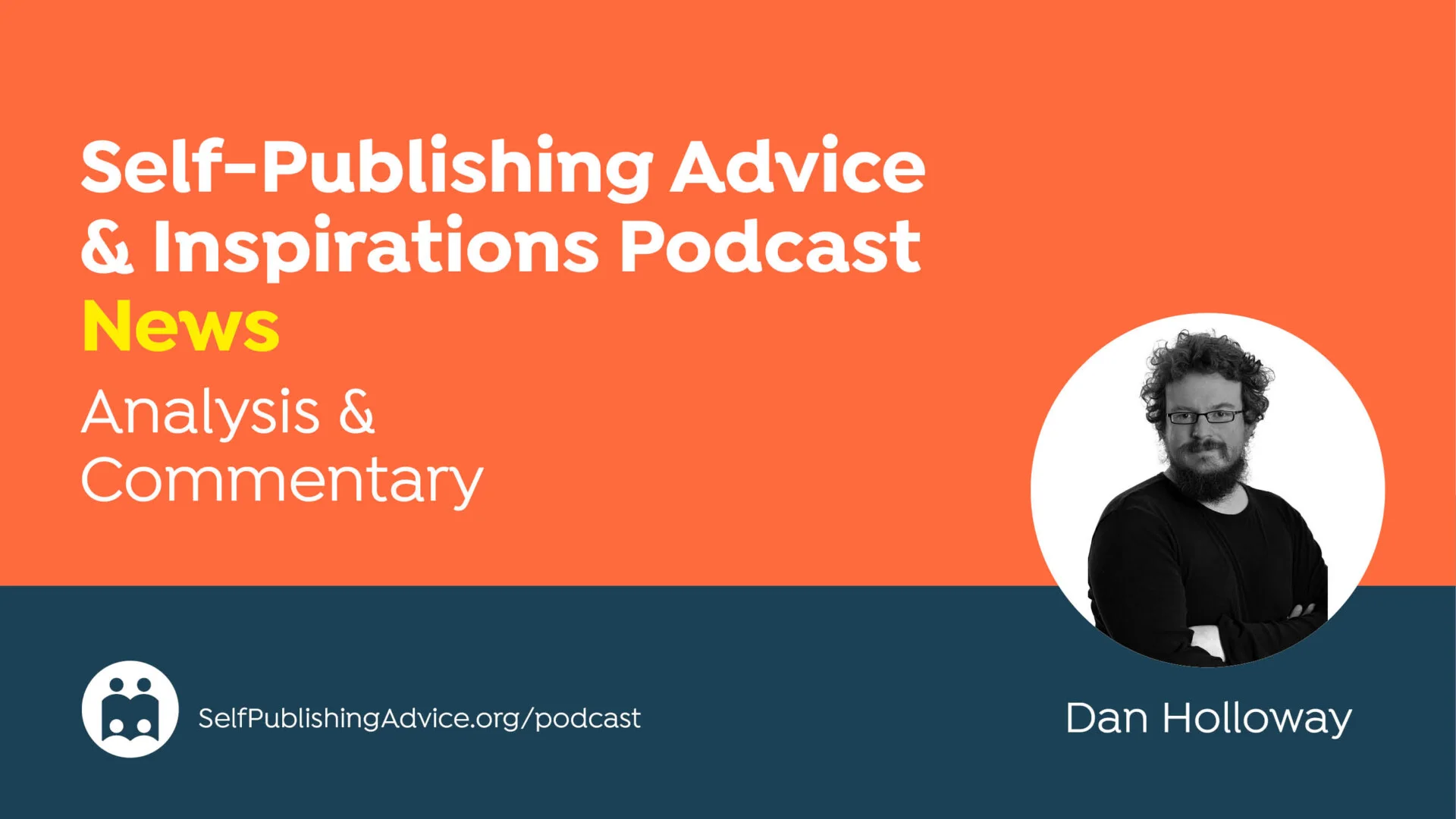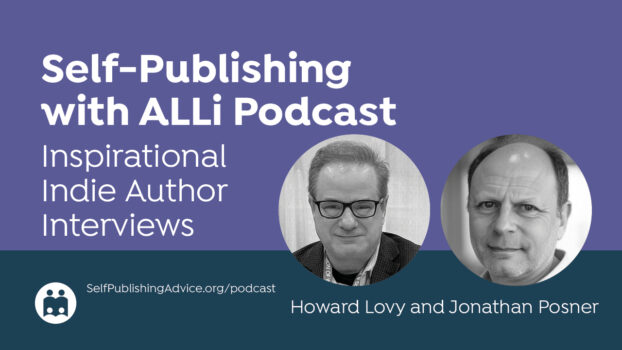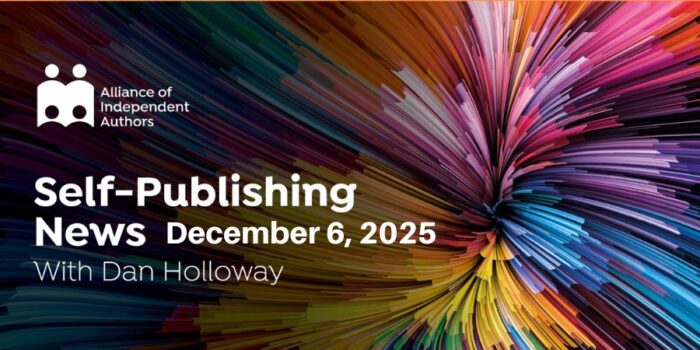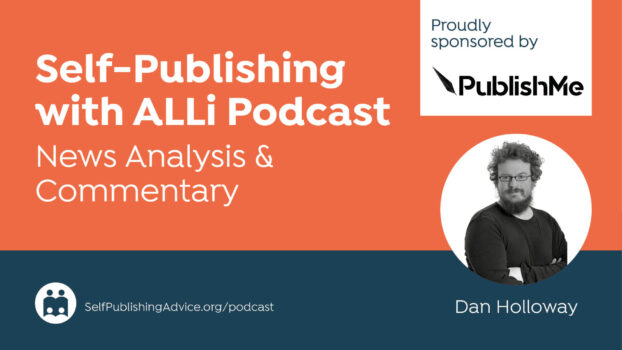The Writers Guild is ready to discuss a blanket license for artificial intelligence. Welcome to Self-Publishing News with ALLi News editor Dan Holloway, bringing you the latest in indie publishing news and commentary.
Find more author advice, tips, and tools at our Self-publishing Author Advice Center, with a huge archive of nearly 2,000 blog posts and a handy search box to find key info on the topic you need.
And, if you haven’t already, we invite you to join our organization and become a self-publishing ally.
Listen to Self-Publishing News: Writers Guild on AI
On the Self-Publishing News podcast with @agnieszkasshoes: The Writers Guild is ready to discuss a blanket license for artificial intelligence. #AI Share on XDon't Miss an #AskALLi Broadcast
Subscribe to our Ask ALLi podcast on iTunes, Stitcher, Player.FM, Overcast, Pocket Casts, or Spotify.
About the Host
Dan Holloway is a novelist, poet, and spoken word artist. He is the MC of the performance arts show The New Libertines, He competed at the National Poetry Slam final at the Royal Albert Hall. His latest collection, The Transparency of Sutures, is available on Kindle.
Read the Transcripts to Self-Publishing News: Writers Guild on AI
Dan Holloway: Hello and welcome to another Self-Publishing News podcast from here in Oxford, where we are looking forward to the big winter freeze finally starting. Oxford has been flooded the last few days; it's all been very disruptive but nonetheless very beautiful. We are expecting the floods to turn to ice and needless to say there will be much poetry in the air as we watch nature do its natural thing.
Talking of nature, that brings us back inevitably this week to the subject of the opposite of nature, artificial intelligence, because after a week or so away, AI is back dominating the news headlines. Two stories in particular, the first is one that's not really surprising, and that is that OpenAI have issued their response to the New York Times, who are suing them for breach of copyright.
In particular, what the New York Times is worried about is the way that platforms like ChatGPT are able to use their content to provide summaries of the news for people who use the chat summaries that might be presented in the way that is personalized to you because they know how you like to read those news items.
But the most important thing from news media's point of view is that you will be reading them within the frame of ChatGPT and other AI platforms, and not clicking through to the original source. Of course, if you don't click through to the original source, then that original source is unable to benefit from advertising revenue on which they rely in the internet age.
It's not surprising that they are pursuing a lawsuit, though there are others who claim that there are some more cynical reasons involved.
Utterly unconnected, I am sure, to the lawsuit is the fact that half a year of talks over how to price an agreement with OpenAI had broken down, leading some far more cynical than myself, I couldn't possibly say I agree with this, to say that actually this is a negotiating tactic.
OpenAI's response, as I say, hardly surprising is to say that the case is, as they put it, without merit. What they point to in particular is, or rather not point to it, but get on the front foot about it, is they say actually, the things that it's claimed ChatGPT is doing could only be done if the New York Times were manipulating the prompts it puts in against the terms of service. We are there to protect publishers, they manipulated the prompts against our terms of service, and that was the only way they were able to get out the output that they claim infringes their copyright.
So, it's going to be an ongoing battle. Most likely it will end in an agreement. That seems to be the way increasingly that things are going. I guess you could call it a level of resignation or acceptance amongst content publishers.
That leads us to our next set of stories. I'll start with the Screen Actors Guild. Of course, Screen Actors Guild went on strike very publicly last year. One of the things that was behind the strike was the use of AI in writer's rooms. They have said now that they are willing to sit down and talk with AI companies about the use of AI.
There does seem to be this growing acceptance that these things are happening anyway, and how do we figure out how to negotiate our place in this new landscape?
So, the conversations there will focus in particular on AI versions of actor’s voices, and how they may or may not be used and how actors may or may not be compensated.
But of real interest to us, as authors, is that the Authors Guild in America has also decided that it wants to look at how to deal with AI rather than just, as they've introduced no-AI clauses into their template contracts that authors can sign with publishers and platforms. Now, they are thinking about, I guess they are calling it pragmatism or realism of what they are going to do in a landscape where AI is inevitably going to be using writer's works.
So, the chief exec, Mary Rasenberger, has said, “we have to be proactive because generative AI is here to stay.”
So, if you think that something is inevitable, then I guess what you have to do is figure out a way to deal with it.
She carries on, “there's nothing wrong with the tech. It has to be legal and licensed.”
So, they're looking at ways to ensure that authors are compensated for the use of their books, and it looks like what they're looking at is a blanket license fee, that means that any book that is ingested, there will be a fee for that. So, if you have your book used, you will be compensated.
And importantly, if the output of a platform references your content, then that will also trigger a fee. Another thing that they are looking at, as a condition of this blanket license, is stopping the ‘ in the style of' prompts.
These are things that of course, first came to prominence with artists, when it turned out that cover artists were having their work used to train tools like Midjourney and DALL-E.
What was happening was people were saying, I'd like a cover, I'd like it in the style of my favourite cover artist, and out would come this cover in that style. So, the, in the style of, thing is something that people have got very worried about in terms of copyright, because it is really hard to prove that something that is delivered in the style of a particular artist or author is a breach of copyright.
So, they're looking to bake this actually into any contract with AI companies. How that's going to work, that's a whole other issue. How people would get paid, how payment would be triggered, whether that would mean opening up the black box of an algorithm, whether it would be triggered by keyword prompts, whether there will be ways around that.
It feels like this is something where the logistics of how it's going to work haven't necessarily been fully thought through, but it is really interesting that the Authors Guild is now openly saying, this is here to stay, we need to find a way to deal with it.
That is something that is going to affect us all. Not just in the years to come, but clearly in the weeks to come. The time frame on these things is moving very quickly.
Moving away from AI, some really good news last year was the increasing use of libraries for digital downloads, and the extent to which people are using libraries to read eBooks and listen to audiobooks.
I've reported on that already. What we have now is the exact figures from Overdrive of which local authorities are the most popular with digital users, and which books are the most popular, which is probably the thing that we all want to know.
What we do know is that for the first time, a library system, the LA Public Library, has had 12 million digital lends in a year, which is a huge number.
When it comes to the books that are involved, there's probably not too much surprise here. Colleen Hoover is dominating the eBook charts. Interestingly, she doesn't dominate the audiobook charts. Audiobooks seem to be dominated by the fantasy author, Rebecca Yarros, also really popular young author, and it'll be no surprise that Sarah J. Mass has several titles in the most downloaded or lent lists.
Also great to see Alice Oseman's Heartstopper in the lists of the most lent graphic novels. Alice Oseman, of course, started the Heartstopper series on the self-publishing graphic novel website, Tapas. So, it's great to see something of an indie success.
Of course, as indies, we are able to access Overdrive's catalogue for both our eBooks and our audiobooks through a number of platforms. Draft2Digital, for example, and direct for audiobooks through Findaway Voices. So, it's really great to see some indie authors on that list.
I will end with something that sort of ties together a theme that I was looking at the end of last year, which is Indie author incomes in general and the ongoing theme of AI, and that is a new survey that's come out on the incomes of translators.
Translators, of course, have been in the news in relation to AI recently with Duolingo laying off many of its translators in favour of AI translation. So, this is an area where creatives are definitely feeling the pinch and feeling that the horizon is moving very swiftly around them.
The survey of their incomes shows quite similar figures to writers, in that there is an average or a median around $10,000 a year. Most are not making most of their income from the creative work they do. So, more than half have another job, 74%, and the trend is going in the wrong direction. Earnings are going down, the number of people who rely on other work is going up.
Unsurprisingly, because more than half of translators do not have a royalty agreement in their translation. So, I think the figure is around 46% who do. Therefore, what they do is not scalable. That means that if your translation sells a million copies, they make no more money than if it sold a couple of thousand, which means that the income is more secure, but that it can't scale. That means that there were no translators in the survey who earned six figures.
Obviously, unlike surveys of writers where there is a massive, U-shaped curve for writers, there is a long tail at the bottom of people who earn next to nothing, but there is also this sort of top of the earnings list where there are authors who earn six figures, even seven figures. We know there are some who earn eight. There's nothing like that when it comes to translation.
There is, though, this impending worry of how AI is going to impact their income in the long term. Obviously, there is a flip side to that, the same as there is for voice artists, in that the more AI gets to be really good at translation, the easier it will be for indie authors to find ways to maximally exploit the rights they have in their work without outlay.
So, there is this sort of seeming benefit to people who are going to find it easier to produce books in multiple formats and exploit their rights in multiple markets, on the one hand.
On the other, there is a whole cadre of creative people who are going to be deprived of their work, and that is a balance with pressures coming from either side that is only going to get more on a knife edge as time goes by.
Inevitably, I will have more on many of these stories over the coming year. I hope that there will be much more on stories like the popularity of libraries because that's something I'm always aware of here in Oxford. I spend a lot of my time in libraries. They are things we cannot live without, and I hope we never have to. So, I'll leave you on that hopeful note, and look forward to speaking to you next week.





